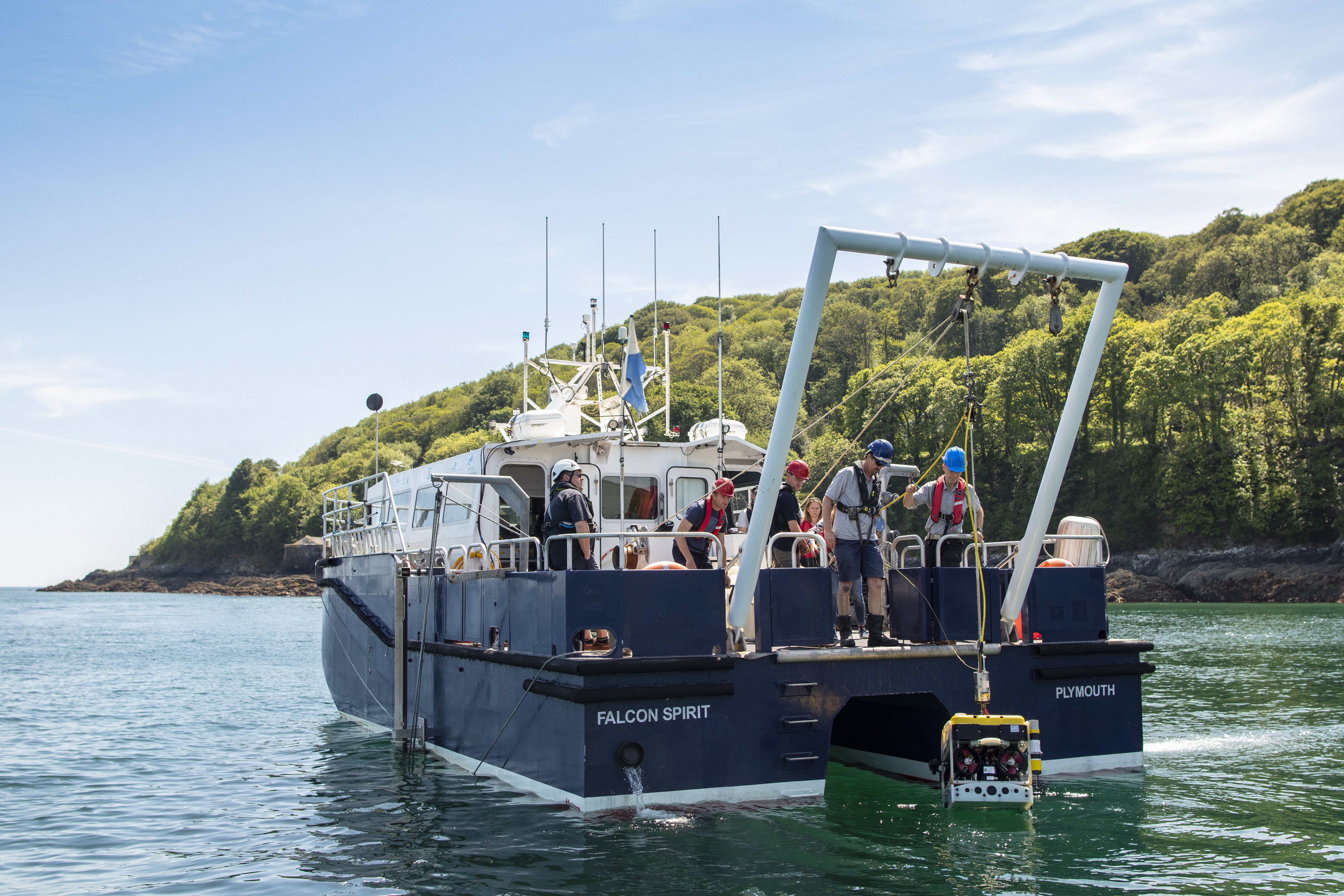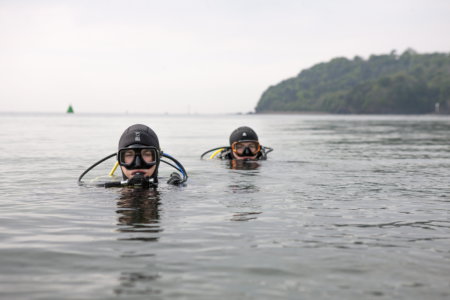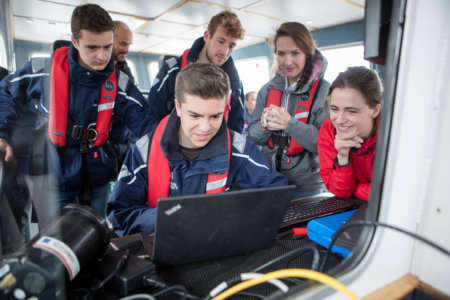MSc Hydrography
Sebastian Botsyo’s interest in hydrography began during his first degree, when he was introduced to the branches of geomatic engineering. But what sparked his passion further was the disappearance of Malaysia Airlines Flight 370. “I became very fascinated about hydrography. My interest increased when I watched the search, exploration, and mapping of the deep ocean in search of MH370 by Geoscience Australia,” he shares.

Pictured: International student Sebastian Botsyo (of Ghana) is currently studying MSc Hydrography with the University of Plymouth. Source: University of Plymouth.
Interest piqued, Botsyo decided to pursue an MSc Hydrography at the University of Plymouth. “The course content motivated me to study here,” he says. “The practical work was centred on a bathymetric survey and was supported by lectures on key topics such as electromagnetic waves, acoustic waves, measurement techniques, computational processes, and reference frames.”
There are many reasons to love studying MSc Hydrography with the University of Plymouth. The £4.65 million Marine Station serves as a perfect, state-of-the-art base for students’ marine expeditionary work. Located on the shore of Plymouth Sound, this exceptional research facility overlooks the sea and features: wet labs for sample examination and analysis; a seawater aquarium; field equipment storage; changing facilities; as well as a base for high-spec research vessels, equipped with cutting-edge instrumentation.
“The proximity of the University’s campus to the waterfront assured me of its effective and efficient practical work,” says Botsyo. “A virtual tour of the Marine Station showed me that the University has all the facilities necessary for conducive teaching and learning.”
For these reasons, it’s little wonder why Nishal Anuth also chose to study MSc Hydrography. “I received three university offers in the UK, but I decided to study at the University of Plymouth as it has the best academic resources and facilities,” he says. “The course is also accredited by the Royal Institution of Chartered Surveyors and the Chartered Institution of Civil Engineering Surveyors. They offer free student membership, and it’s a great way to network with those already in the profession.”
MSc Hydrography helps students nurture practical and professional competencies. The course enables students to explore practical research opportunities and links to international marine businesses. Students have access to the University’s Marine Institute, as well as the Southwest Hydrographic Society.
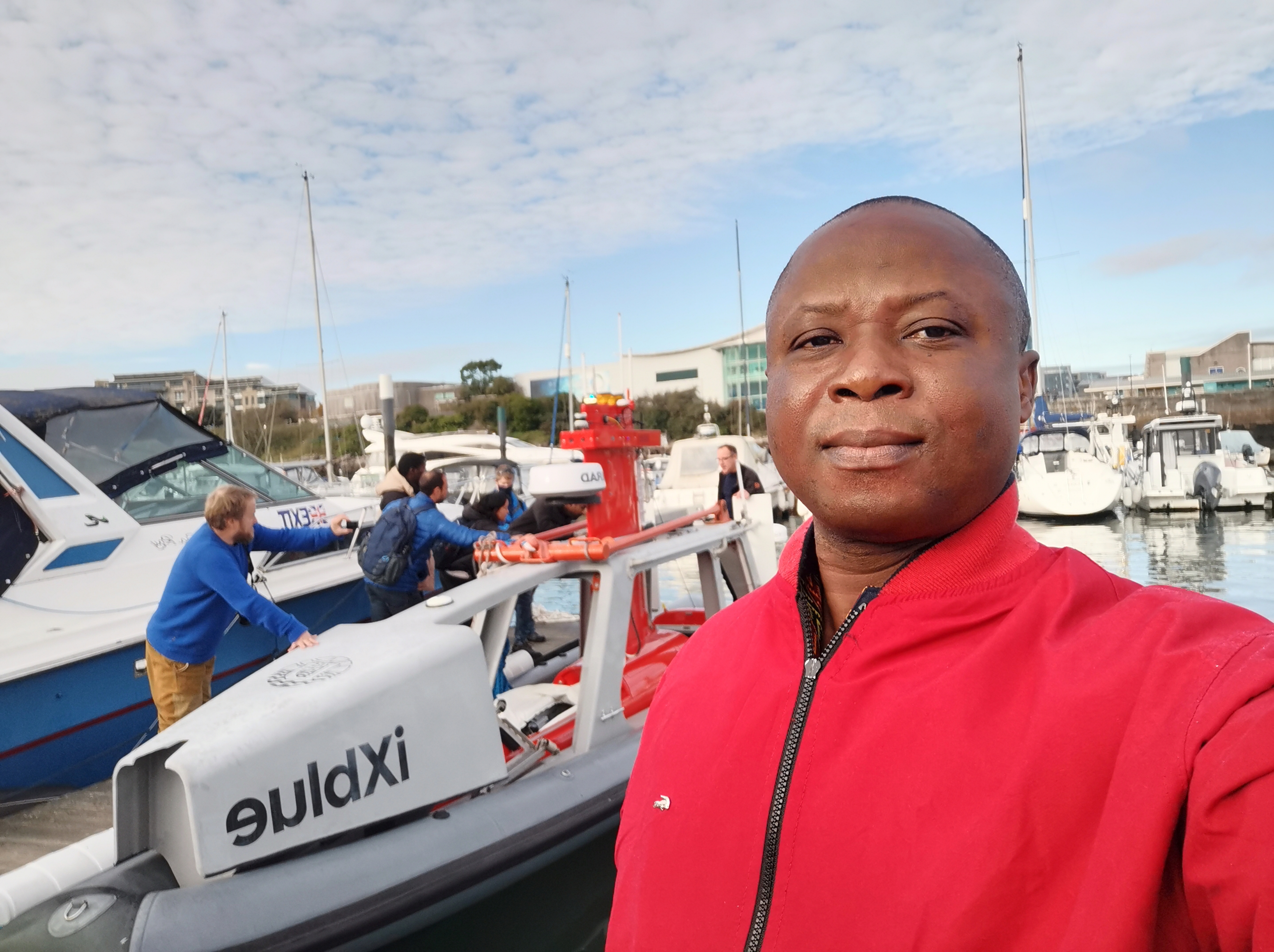
Pictured: Botsyo, waterside at the University of Plymouth’s Marine Station, preparing for practical work at sea. Source: Sebastian Botsyo.
Both Botsyo and Anuth benefit from strong engagement with extracurricular groups and links offered by the University. Anuth says, “I joined the University of Plymouth’s Judo Club, Professional Mentoring Programme, as well as the Southwest Hydrographic Society. The Southwest Hydrographic Society helped me gain insights into the field and connect with experts.”
Botsyo admits that he hasn’t found the time to fully explore the clubs and societies at the University (there are many) due to his rigorous master’s programme. Yet, he wouldn’t have it any other way. “This course is very demanding in terms of time and commitment, and anyone who wants to do MSc Hydrography must stay focused and dedicated. It is doable when you are committed,” shares Botsyo. “I am convinced that the University of Plymouth possesses the quality of education and diversity in a student body that can best help me fulfil my goals.”
MSc / MRes Applied Marine Science
Taryn Cadena’s lifelong dream is to forge a career in marine science. She knew the University of Plymouth was the right place to realise this. “The University of Plymouth was the natural choice when choosing a university, having been ranked first in the world for its research on life below water,” says Cadena.

Pictured: International student Taryn Cadena (of the USA) is currently studying MRes Applied Marine Science with the University of Plymouth. Source: University of Plymouth.
Pursuing the MRes Applied Marine Science, Cadena is gaining the skills, knowledge and practical experience required to work as a marine scientist. It’s a career in high demand — our oceans are crucial in solving the climate crisis.
Throughout the one-year-long programme, students explore: taught modules, research training, laboratory work, coursework, exams, a research project, and a dissertation. They visit local bays and estuaries, as well as undertaking a field week working with complex instrumentation in the lab and at sea. All these experiences make students more confident and competent and prepare them well to become highly sought-after marine scientists in the employment market.
Cadena relishes how challenging the modules are. “My favourite modules so far – Marine Science, Remote Sensing and GIS – have also been the most challenging. The lecturers for these modules are not only at the top of their field, but they teach with enthusiasm and a willingness to provide their students with the best education possible” she says.
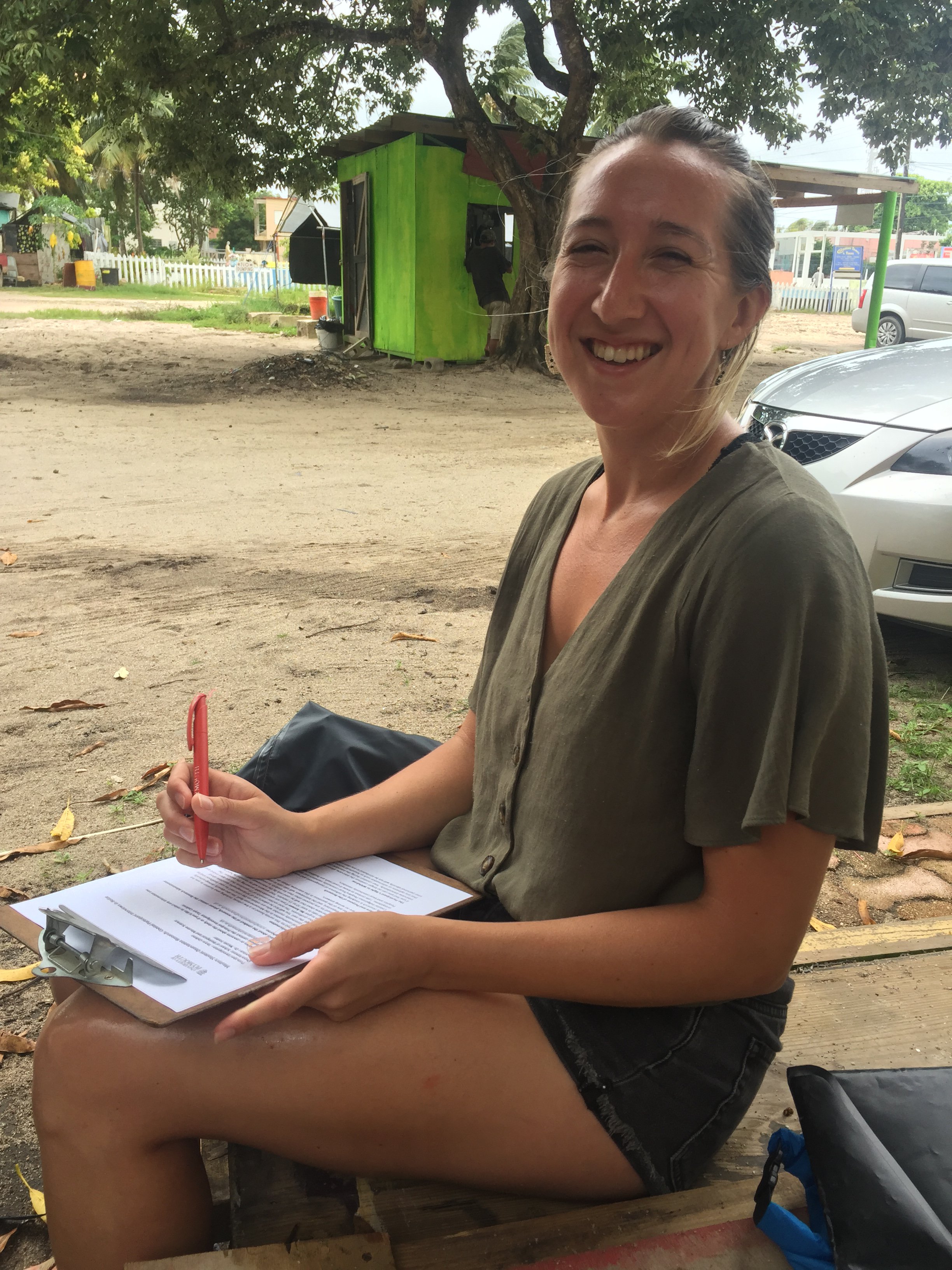
Pictured: Cadena undertaking fieldwork in Belize as part of her dissertation project. Source: Taryn Cadena.
Currently undertaking her dissertation, Cadena has researched the links between coastal communities and coral reef ecosystem health; a process which has taken her through Central American / Caribbean fishing villages, in the Toledo District of Belize, conducting fieldwork.
“My desire to understand these connections brought me to the largest barrier reef system in the western hemisphere, the Mesoamerican Reef” explains Cadena. “The support I’ve received from University staff has all been vital to ensure that my fieldwork was a successful venture”.
Your future with the University of Plymouth
Whether you pursue MSc Hydrography or MSc / MRes Applied Marine Science you will gain the knowledge, skills and experience needed to build a more sustainable tomorrow. Anuth summarises his time at the University of Plymouth best: “Plymouth is a wonderful place to be. Make the most of your time there and enjoy the food and scenic places while you study. Most importantly, do not hesitate to ask for help. All the staff are there for you.”

